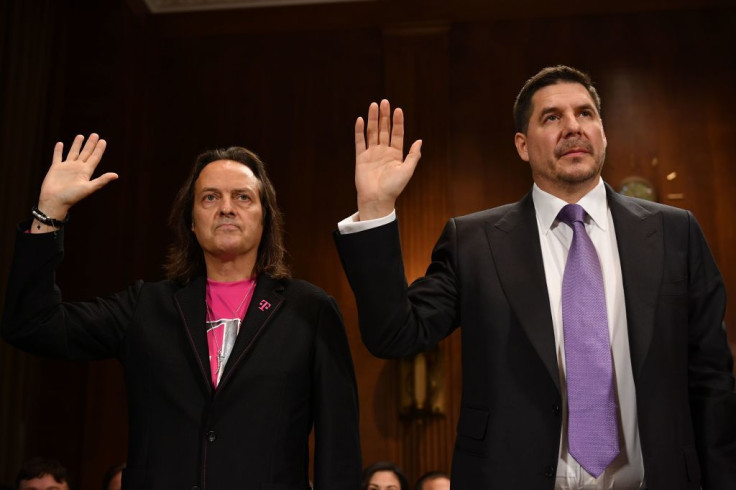Sprint, T-Mobile Merger To Help Bring Thousands Of Jobs To Denver

Denver’s past glory as a telecommunication hub will be back with the emergence of Dish Networks as the new wireless network player and a job boom is also expected in the region, according to reports.
Under the package for the deliverance of DOJ approval to the $26.5 billion T-Mobile Sprint acquisition deal, Dish Networks entered the fray as a potential player and agreed to buy $5 billion worth assets of the merging duo.
Dish, based in Douglas County is expected to create thousands of jobs in the region helping metro Denver economically as a telecommunications hub.
Dish Network chairman, Charlie Ergen has committed to creating a cheaper, faster yet advanced network.
Dish officials are yet to provide an estimate of the number of jobs it might create in the state.
Out of the 16,000 employees of Dish, nearly 4,800 are based in Colorado, metro Denver. The staff strength of Sprint and T-Mobile are 30,000 and 51,000 respectively.
The Dish is aiming to run a leaner system than the incumbents for maintaining a competitive advantage.
Even if Dish runs its wireless operations with 15,000 people, it could still create 4,500 jobs to metro Denver by keeping its ratio of local workers to total workers as in the television subscription business.
This economic boom in the Denver region is going to be as exciting as the Denver Broncos news, per reports.
The fast-growing job category in the state is installers and repairers of radio, cellular and tower equipment, according to a study from CommercialCafé.
Dish Network has the latent advantage of owning $21 billion worth of wireless spectrum. It is planning to spend $1 billion by 2020 for a narrow-band network to enable commercial users to connect multiple devices and sensors.
The Front Range region may have a head start when it comes to the areas that will receive Dish 5G services.
According to Ergen, his networks’ architecture will ensure tremendous capacity. Even when Dish is in a position to match Verizon Wireless with 120 million retail customers it will use only 30 percent of the available capacity, Ergen said.
The Dish would lease another 35 percent for 5G applications like precision agriculture, blockchain, smart cities, health care, robotics, smart grid, artificial intelligence, and driverless vehicles, he said.
Missed opportunities that cost Denver heavily
A decade ago, Denver was a thriving hub of telecom players and the metro was buzzing with their action.
The US West, a Denver-based telecom that was born as an offshoot of the breakup of AT&T, launched a cellular network in 1998 and won a million customers. Qwest Communications later acquired it and rolled out fiber-optic networks and high-speed data. But the wireless assets based in Denver eventually became part of Verizon.
According to Ian Olgeirson, a research director for Kagan, the research arm of S&P Global Market Intelligence, the US West will regret its decision in not having developed own wireless unit. Else, city Denver would have retained its high profile as a telecom hub.
New challenges for Dish
Dish still has many challenges ahead. It must put up or lease capacity on 15,000 cellular towers to reach 70 percent of the U.S. audience by June 2023. It needs to win over customers from rivals like Verizon and AT&T.
Meanwhile, reports said Dish Network lost approximately 79,000 net Dish TV subscribers during the second quarter although it added roughly 48,000 Sling TV subscribers. The net loss of approximately 31,000 pay-TV subscribers is obvious. It underscores the assumption that traditional pay-TV is on the decline.
Dish Network stock was down 3.12 percent Wednesday on Nasdaq trading.
© Copyright IBTimes 2025. All rights reserved.





















